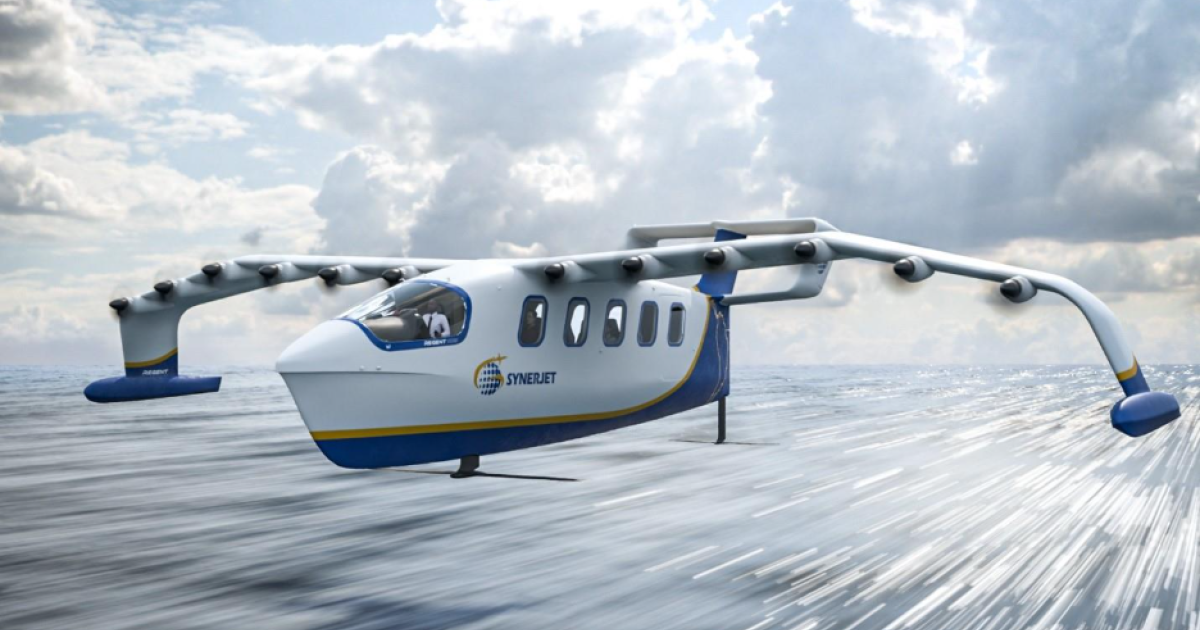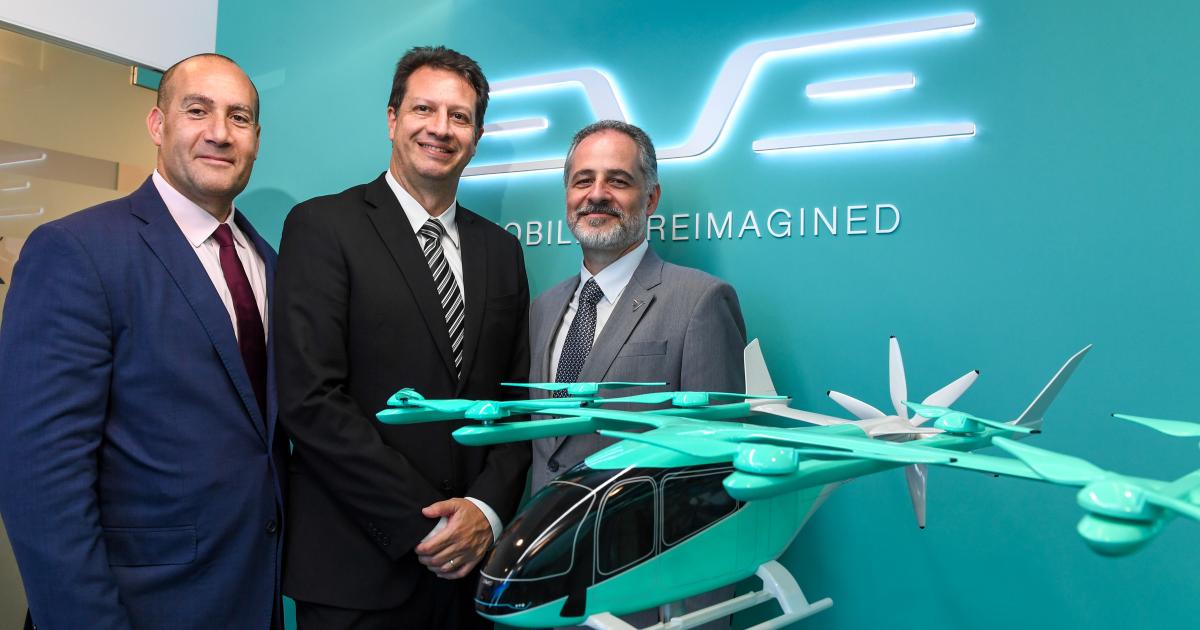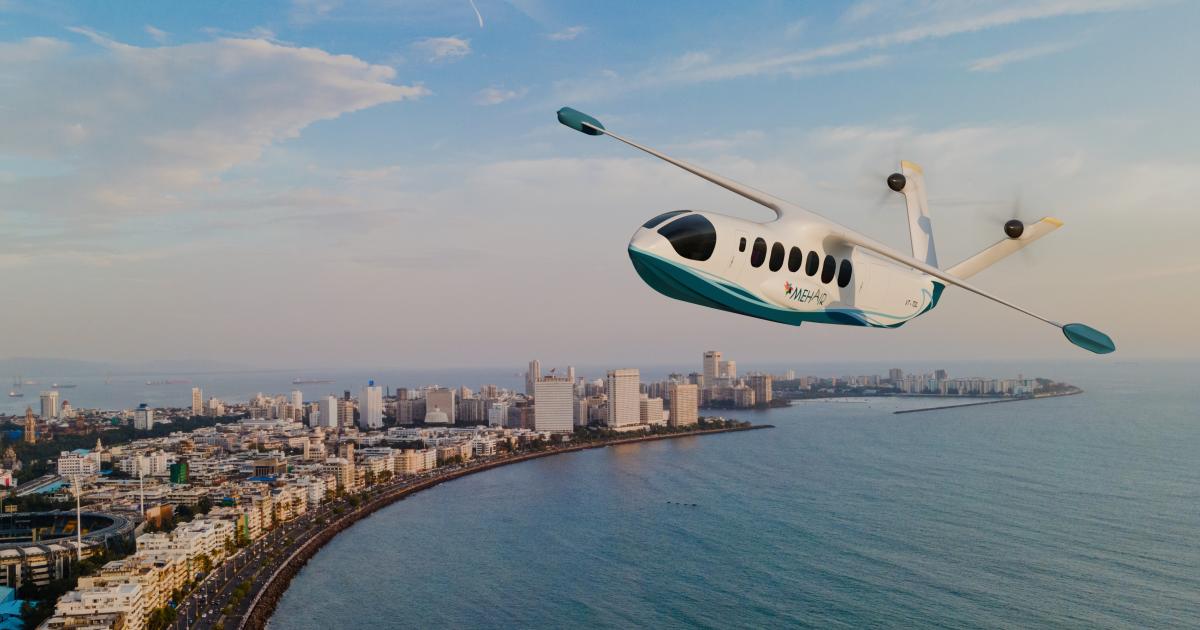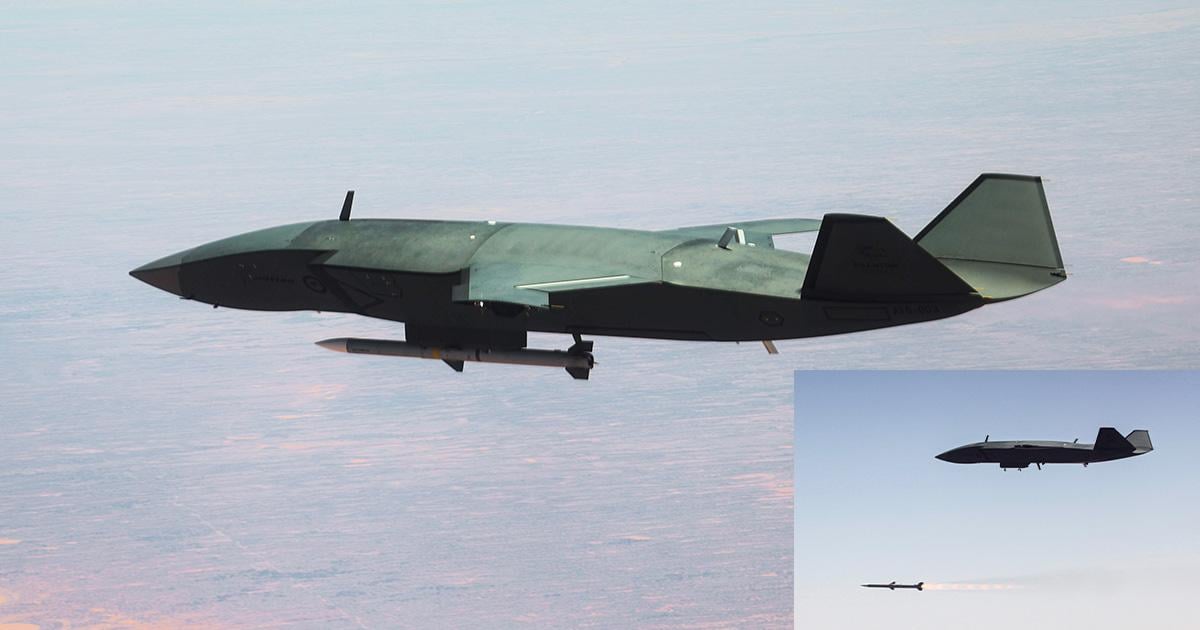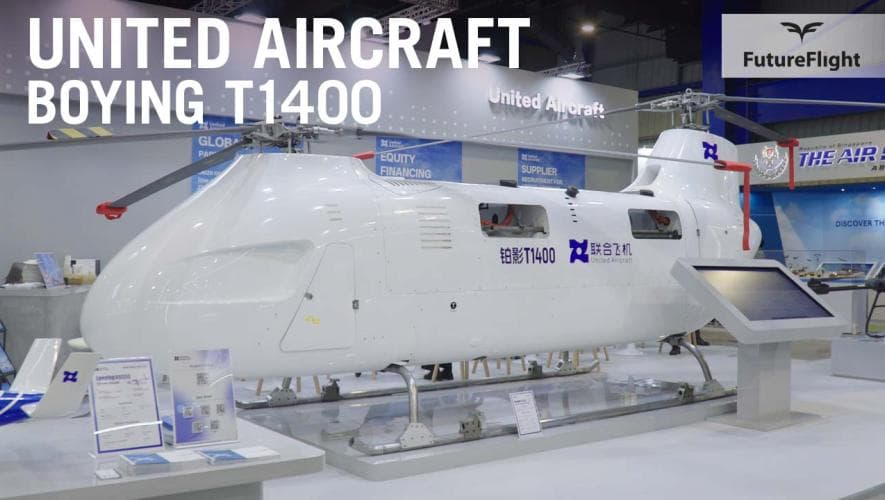Latest FutureFlight Videos
All Videos
FUTURE FLIGHT
Sign up for our free newsletter
News and analysis covering cutting-edge aviation technology and business models, including zero-carbon propulsion, eVTOL aircraft, automation and autonomy, and new infrastructure.
FutureFlight News
FutureFlight
Heart Raises a Further $107 Million for ES-30 Hybrid-electric Airliner
The manufacturer aims to achieve a first flight with the 30-seat aircraft in 2026 and hopes to receive EASA type certification in 2028.

FutureFlight
Loganair Lays Plans For Hydrogen-Powered Flights From Scotland's Orkney Islands
The airline wants to use Britten-Norman Islander aircraft converted to use a hydrogen propulsion system developed by Cranfield Aerospace Solutions.

FutureFlight
EHang Prices Its Two-Seat Autonomous eVTOL Aircraft At $334,000
The EH216-S received a Chinese type certificate in October 2023 and the manufacturer has started deliveries on a small scale

FutureFlight
Archer Revs Up Flight Tests With Midnight eVTOL Air Taxi
The Midnight eVTOL prototype is picking up speed in preparation for its first transition flight.

FutureFlight
Lilium Announces Plans For Parts Distribution to eVTOL Aircraft Operators
Lilium has selected supply chain specialist AJW Group to manage and distribute spare parts for the Lilium Jet eVTOL aircraft.

FutureFlight
Beta’s Electric Air Taxi Demonstrates Military Use Cases
The all-electric Alia prototype demonstrated time and cost savings in casualty evacuation and emergency maintenance mission simulations.

FutureFlight
Eve Appoints Four More Suppliers For eVTOL Aircraft
The manufacturer is building the first prototype for its four-passenger vehicle and intends to start flight testing this year.

FutureFlight
Eviation Shakes Up Leadership Team For Alice Electric Aircraft
Eviation has appointed Andre Stein, co-founder and former CEO of Eve Air Mobility, as its new CEO. Meanwhile, former Cirrus and Gulfstream executive Jeff Hurford is assuming the role of chief financial officer.

FutureFlight
MightyFly Rolls Out Third-Generation Autonomous eVTOL Freighter
The FAA has awarded MightyFly a special airworthiness certificate and a certificate of authorization permitting it to fly the experimental aircraft between two San Francisco Bay-area airports.

FutureFlight
Bombardier Steps Up EcoJet Project to Cut Business Aircraft Emissions
Bombardier has partnered with the University of Victoria on the EcoJet project, which aims to reduce business jet emissions with blended-wing-body designs.

Sustainability and Environment
Bombardier Reveals First EcoJet Partners
The University of Victoria joins Bombardier's sustainability efforts

FBOs
Clay Lacy Expands eVTOL Ops Plan with New Partnership
Plans at California FBOs could extend to new vertiport locations

FutureFlight
Archer and NASA Collaborate on eVTOL Aircraft Battery Testing
Under a new Space Act Agreement, Archer will work with the U.S. space agency to characterize the safety and performance of the battery cells that power the company’s Midnight eVTOL air taxi.

FutureFlight
Joby Lines Up New York City eVTOL Air Taxi Operating Base
A heliport in Kearny, New Jersey, will be the manufacturer's base for planned eVTOL aircraft operations in and around Manhattan.

FutureFlight
FutureFlight Weekly News Roundup
FutureFlight.aero's Weekly Advanced Air Mobility News Roundup

FutureFlight
Indian Private Aviation Operator Sizes Up Trio of Electric/Hybrid Aircraft Fleet Options
JetSetGo's commitments with Overair, Electra and Horizon could cover 280 new aircraft valued collectively at $1.3 billion.

FutureFlight On The Radar
UK Hydrogen Fuel Infrastructure Project Looks To Move the Dial on Affordability
Limited supplies and infrastructure mean hydrogen fuel remains an expensive and impractical option for air transport, but technology specialists like Haskel believe they know how that equation could change.
FutureFlight
Vertical Founder Pledges $50 Million To Sustain Work on VX4 eVTOL Aircraft
The UK start-up has been put on notice by the New York Stock Exchange that its stock must start trading above $1 to maintain its listing

FutureFlight
Indian Regional Airline Mehair Signs For ZeroAvia's Hydrogen Propulsion System
The carrier operates seaplanes and wheeled aircraft across the Indian sub-continent and is seeking to expand the network with Indian government backing.

FutureFlight
Horizon Completes IPO and Signs eVTOL Purchase Agreement with Indian Charter Group
A memorandum of understanding with Dehli-based JetSetGo prices its six-passenger Cavorite X7 eVTOL aircraft at $5 million.



